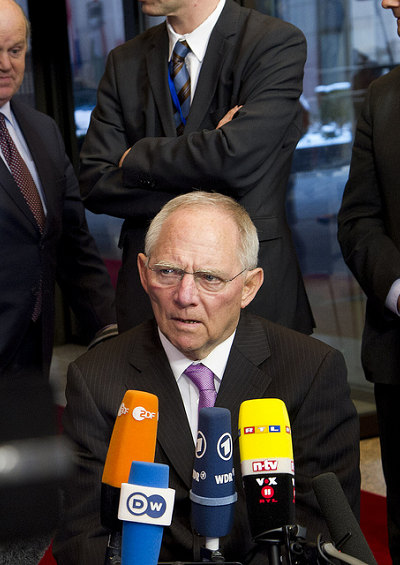Europe and the Consequences of French Weakness
European changes since German reunification 25 years ago represent a double blow for France.
July 23, 2015
While Germany would have once feared European isolation, as the debate over Greece and a possible Grexit shows, it now puts forward views opposed by France with demonstrative self-confidence.
This reflects not only manifest German economic strength but also the EMU membership of several smaller nations from central and eastern Europe that take an even more robust attitude than Germany on the Greek economy.
From the Baltic to former Yugoslavia, small euro states that were previously part of the Soviet bloc have been converted to German allies and steadfast proponents of monetary orthodoxy.
European changes since German reunification 25 years ago represent a double blow for France. The Germans used to be France’s buffer zone against the Soviet Union. Now, that’s history.
Yet, as the new round of EMU antagonism shows, there is a new buffer zone in Europe – the one played by a cluster of small ex-communist countries – who now act as buffer states to protect Germany against France.
The new alliance
In the coming months, we will see reinforced efforts by French President Francois Hollande and Italian Prime Minister Matteo Renzi to build a European coalition opposing German-style austerity. Depending on economic and political developments, that alliance could find support in Madrid and Lisbon.
The problem for Hollande is that these efforts could result in a widening of Franco-German bond spreads.
Hollande’s all-too-obvious weakness in the Brussels negotiations is likely to enhance his own desire for a sharper profile against Germany as he prepares for a bruising presidential election in April-May 2017 against Marine Le Pen of the Front National and, possibly, revenge-seeking former President Nicolas Sarkozy.
Behind the scenes, bitterness has been building for some time between Paris and Berlin. A new generation of German politicians and civil servants has come to the fore. They are less patient with their French neighbor, more self-confident and less likely overall to pay homage to the Grande Nation.
In the years since unification, even as the basic ties of post-war reconciliation began to fade, the French and Germans have been bound together by a curious symbiosis:
- France has needed an outwardly robust Germany to camouflage the extent to which the French have fallen from grace in the economic and political stakes since the 1980s.
- For Germany, the appendage of an apparently confident (but in reality seriously weakened) France has been a profoundly useful device to conceal from the rest of the world an inconvenient rise in German power.
Now, this carefully choreographed pas-de-deux appears no longer to be valid – with results that no one can forecast.
Editor’s note: For full-length version, click here.
Takeaways
European changes since German reunification 25 years ago represent a double blow for France.
The Germans used to be France’s buffer zone against the Soviet Union.
A cluster of small ex-communist countries now act as buffer states to protect Germany against France.
Behind the scenes, bitterness has been building for some time between Paris and Berlin.

